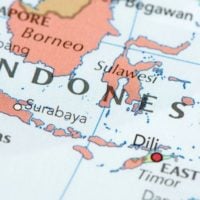Non-Governmental Organizations (NGOs) play a crucial role in addressing social, environmental, and economic challenges around the globe. However, to sustain their operations and expand their reach, NGOs often rely on grant funding. Grants are financial awards provided by governments, foundations, corporations, or other entities to support specific projects or initiatives.
Unlike loans, grants do not require repayment, making them an attractive source of funding for NGOs. Understanding the basics of NGO grants is essential for organizations seeking to secure financial support for their missions. At its core, grant funding is designed to promote positive change and support initiatives that align with the funder’s goals.
Each grant comes with its own set of eligibility criteria, application processes, and reporting requirements. Therefore, NGOs must familiarize themselves with the various types of grants available, including project grants, operational grants, and capacity-building grants. Additionally, understanding the motivations behind funders’ decisions can help NGOs tailor their proposals to meet specific expectations and demonstrate how their work aligns with the funder’s mission.
Top Grant Opportunities for NGOs in 2022
Global Grant Opportunities
Some notable grant opportunities include the Global Fund for Community Foundations, which provides funding for community-led initiatives worldwide, and the Open Society Foundations, which supports projects that promote democracy and human rights.
Local and Regional Funding Options
In addition to these well-known funders, many local and regional foundations offer grants tailored to specific communities or causes. For instance, the Walmart Foundation provides funding for initiatives that enhance community well-being and economic development. Similarly, the Ford Foundation focuses on social justice and equality, offering grants to organizations that work towards systemic change.
Securing Funding for NGOs
By researching and identifying grant opportunities that align with their mission and objectives, NGOs can increase their chances of securing funding. This involves a thorough review of the available grants and a careful selection of those that match the organization’s goals and values.
Conclusion and Recommendations
Ultimately, the key to securing grant funding is to stay informed about the available opportunities and to be strategic in the application process. By doing so, NGOs can access the resources they need to make a meaningful impact in their communities.
Tips for Writing a Successful Grant Proposal
Writing a successful grant proposal is both an art and a science. It requires a clear understanding of the funder’s priorities and a compelling narrative that showcases the NGO’s impact. One of the first steps in crafting a strong proposal is to thoroughly read the grant guidelines and tailor the application accordingly.
This means addressing all required components, such as project goals, objectives, budget, and evaluation methods. A well-structured proposal not only demonstrates professionalism but also shows respect for the funder’s time. Another critical aspect of grant writing is storytelling.
Funders are often moved by personal stories that illustrate the real-world impact of an NGO’s work. By incorporating anecdotes or case studies into the proposal, organizations can create an emotional connection with reviewers. Additionally, using data and evidence to support claims can enhance credibility.
For example, including statistics on the issue being addressed or previous successes can help paint a picture of the NGO’s effectiveness and potential for future impact.
How to Stand Out in the Grant Application Process
In a competitive landscape where numerous NGOs vie for limited funding, standing out in the grant application process is essential. One effective strategy is to build relationships with funders before submitting a proposal. Engaging with potential funders through networking events, informational meetings, or social media can provide valuable insights into their priorities and preferences.
This proactive approach not only helps NGOs tailor their proposals but also fosters a sense of trust and rapport with funders. Another way to differentiate an application is by showcasing collaboration and partnerships. Funders often look favorably upon organizations that work together to achieve common goals.
Highlighting partnerships with other NGOs, community groups, or even businesses can demonstrate a commitment to collective impact. Additionally, including letters of support from collaborators can strengthen the proposal by providing external validation of the NGO’s work and its importance within the community.
Maximizing Your NGO’s Impact with Grant Funding
Securing grant funding is just the beginning; maximizing its impact is where the real work lies. NGOs must develop a comprehensive plan for implementing funded projects that includes clear timelines, roles, and responsibilities. Establishing measurable outcomes is crucial for evaluating success and demonstrating accountability to funders.
By setting specific targets and regularly assessing progress, organizations can ensure they are on track to achieve their goals. Moreover, effective communication with funders throughout the project lifecycle is vital. Providing regular updates on progress and challenges not only keeps funders informed but also fosters transparency and trust.
Additionally, sharing success stories and lessons learned can enhance future funding opportunities by showcasing the NGO’s ability to adapt and grow. Ultimately, maximizing impact involves not only delivering on promises but also continuously learning and improving based on experiences.
Resources and Support for NGOs Applying for Grants
Navigating the world of grant writing can be daunting for many NGOs, but numerous resources are available to provide support. Online platforms such as GrantWatch and Foundation Center offer comprehensive databases of available grants, along with tools for tracking deadlines and application requirements. Additionally, many local libraries provide access to grant writing resources and workshops that can help organizations hone their skills.
Furthermore, seeking mentorship from experienced grant writers or joining networks of NGOs can provide invaluable insights and guidance. Organizations like Grantmakers for Effective Organizations (GEO) offer resources and training focused on building effective grant-seeking strategies. By leveraging these resources and connecting with others in the field, NGOs can enhance their capacity to secure funding and ultimately amplify their impact in the communities they serve.
In conclusion, mastering grant writing and fundraising is essential for NGOs striving to make a difference in their communities. By understanding the basics of grants, identifying top opportunities, crafting compelling proposals, standing out in applications, maximizing impact, and utilizing available resources, organizations can position themselves for success in securing vital funding. With dedication and strategic planning, NGOs can continue to drive positive change and create lasting impact in the world.









































